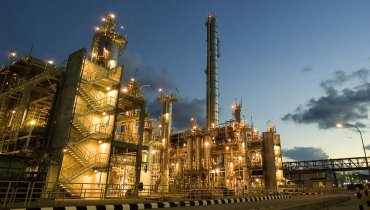BASF Petronas Chemicals Sdn broke ground Thursday on a 50,000 metric ton per year highly reactive polyisobutene plant at its petrochemical complex in Gebang, Kuantan, Malaysia.
The facility, which is scheduled to come online during the first quarter of next year, will make HR-PIBs for lubricant and fuel additives.

Photo: BASF
BASF Petronas Chemicals Sdn is building a unit at its Kuatan, Malaysia, petrochemical complex that will have capacity to make 50,000 tons per year of highly reactive polyisobutene.
The plant will be the first such facility in Southeast Asia to make HR-PIBs, BASF said in a press release. The Gebeng complex – a 50-50 joint venture between German chemical giant BASF and Malaysian national oil company Petronas – is one of two Verbund, or integrated petrochemical complexes that BASF is involved in in Asia. The other, BASF-YPC, is a joint venture with Sinopec in Nanjing, China, that also includes a PIB plant. BASF has wholly owned Verbund complexes in Antwerp and in Ludwigshafen, Germany, and both of those facilities also include PIB plants.
HR PIB is a chemical intermediate used in the production of high-performance lubricant and fuel additives, including additives for sludge prevention. It speeds the producing of derivatives like detergents and dispersants used in lubricants. PIBs can also be used as base stock substitutes for bright stock and have seen growing demand in recent years as bright stock supply has declined.
BASF described the project as a synergistic opportunity for backward integration, meaning it allows the joint venture to make a value-added product while using feedstock and energy efficiently.
